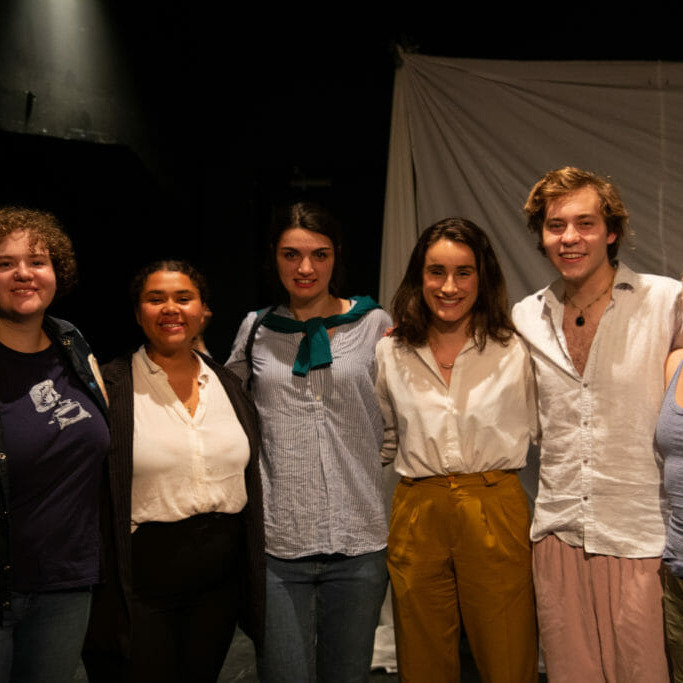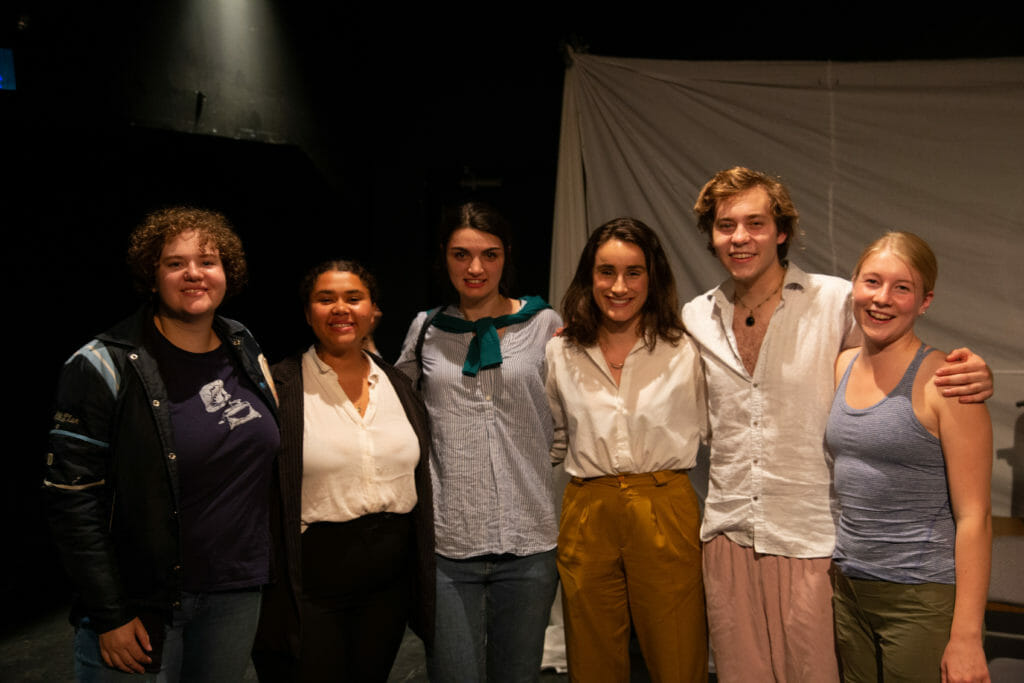
Talking about women’s issues
A King’s student’s recent play gives voice to a variety of women
On Sept. 6, Women’s Issues finished its official run at the Halifax Fringe Festival. The play, borne out of writer Katie Clarke’s desire to understand people with vastly different perspectives, highlights modern struggles women face.
Set during a support group session in a church basement, Women’s Issues tells the story of four women of varying identities: a conservative housewife, an ex-Navy gym teacher, a Black businesswoman and a self-defined butch lesbian. All possessing different world views, these women express their individual traumas in monologues throughout the play.
The process
Clarke, a University of King’s College student and published writer, began her journey with Women’s Issues by watching interviews with women who had voted for Donald Trump in the 2016 United States election. Clarke says she was trying to understand how these women could overlook Trump’s anti-feminist rhetoric when voting for him. What she found ended up being the basis for several characters in her play.

“There were lots of things that shocked me,” says Clarke about researching female Trump supporters. “A lot of women were anti-abortion … [they had] that kind of ‘every woman for herself’ mentality. I was trying to understand the ways in which people come from different spaces and backgrounds that brought them to where they are, and how that feeling of self-protection happens.”
Clarke sat down to write her play in May 2018.
“I went through so many iterations of ‘how do I even have this conversation? I want to do a support group, but I don’t want to have them talk to each other. I don’t want it to be trope-y’… I think the turning point was finding the medium where [the characters] would talk out to the audience,” Clarke says. “I wanted to highlight this idea of feminized folks who don’t have solidarity, and the way society suppresses feminine solidarity while it’s pretending to uplift it.”
Having different voices heard
Clarke didn’t want her voice to be the only one heard in Women’s Issues. So, once she assembled the cast, each actor added their own personal feelings and perspectives.
“The unique thing about this was how Katie wrote a lot of complex perspectives that one human could not possibly authentically write,” says one cast member, Marlee Sansom. “So, instead of trying to write, she just asked. I would write a lot of my monologues and then Katie would edit, and we’d go back and forth. It was super collaborative.”
Another cast member, James Ersil, says they had a similar experience. Ersil plays Jo, a character who questions their gender identity.
“We talked about my personal experiences with coming out, and the pressure that society puts onto lesbian women,” says Ersil. “Having the space to share my own feelings and making them into my character’s was really interesting.”
For some of the actors, it wasn’t about including their own experiences, but rather learning to embody someone else’s. Adriana Loewen and Georgia Noble Irwin both played conservative minded characters.
“The hardest part was finding a way to rationalize myself into those monologues,” says Loewen. “Words coming out of your mouth isn’t enough. You actually need to be able to embody that reasoning. That was really challenging, and it led to a few conversations that we had at my kitchen table trying to figure out how my character could feel this way.”
Irwin says she enjoyed the challenge of trying to understand her character.
“I found it really interesting. One of the things Katie says a lot is the reason this play is so important is it’s giving a voice to the people we don’t really want to listen to, or that we don’t want to give validity to,” Irwin says. “I think it’s important to try and understand them.”
Audience perception
Clarke mentions how last summer, she spent her time working at a non-profit women’s rights organization in Vienna, Austria. She says the right-wing presence was much stronger in Vienna than it is in Halifax.
“I was thinking if this show was done [in Vienna], how completely different the reaction would be,” says Clarke. “I think in different places [the play] would take different forms. It would mean different things.”
Women’s Issues was first performed at the University of King’s College Infringement Festival.
“I think in some ways, the show was a bit sheltered when we put it on at [King’s] Fringe because it exists within the King’s community which is an incredibly accepting community,” Clarke says, “which I’m so fortunate to have.”






